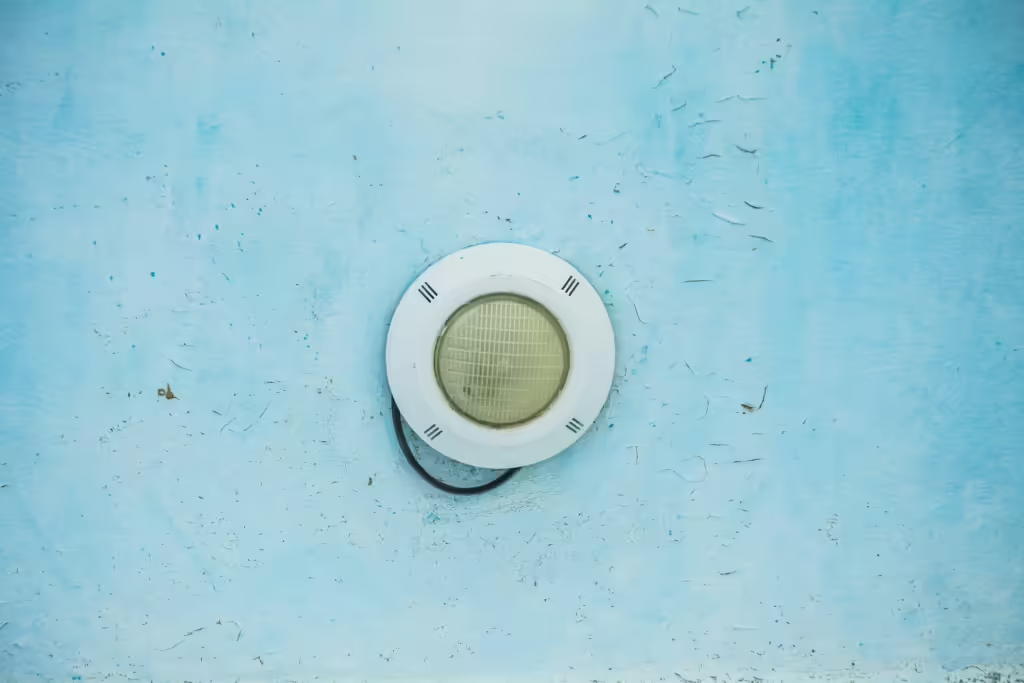For most pools, weekly pool cleaning is recommended to maintain water clarity, balance chemicals, and prevent debris buildup. Pools with heavy use or in warmer climates like San Diego may require cleaning multiple times a week during peak seasons. Adjust the frequency based on usage, climate, and pool type to ensure a safe and enjoyable swimming environment year-round.
Keeping your pool clean and well-maintained is essential for creating a safe and enjoyable swimming experience. Regular cleaning helps prevent debris buildup, ensures balanced water chemistry, and extends the life of your pool equipment.
But how often should you clean your pool? The answer depends on several factors, including pool usage, the local climate, and the type of pool you own. Whether you’re handling maintenance yourself or searching for “pool cleaning near me,” sticking to a consistent schedule ensures your pool stays pristine year-round.
Factors That Affect Pool Cleaning Frequency
Several elements influence how often your pool needs cleaning. Understanding these factors helps you create an efficient cleaning schedule:
1. Pool Usage
The more often your pool is used, the more frequently it requires cleaning. Swimmers introduce body oils, sunscreen, dirt, and other contaminants into the water.
- A residential pool used a few times a week typically needs weekly cleaning.
- Pools with frequent use, parties, or pets may require cleaning multiple times per week.
- Regular testing and chemical balancing are essential, especially for heavily used pools.
2. Climate and Seasonal Changes
San Diego’s warm and sunny climate creates unique challenges for pool owners:
- Summer: High temperatures encourage algae growth and accelerate chemical depletion, necessitating cleaning up to twice weekly.
- Fall: Falling leaves and debris demand regular skimming and cleaning.
- Winter: Pools used less frequently may require less cleaning, but maintenance is still necessary to prevent algae and maintain water quality.
3. Pool Type
The type of pool you own also impacts cleaning needs:
- Saltwater Pools: Require regular salt cell cleaning to prevent calcium buildup.
- Chlorine Pools: Need consistent chemical balancing and debris removal.
- Above-Ground Pools: Often have smaller filtration systems, requiring more diligent cleaning than in-ground pools.
Routine Cleaning Guidelines
Creating a structured cleaning schedule ensures your pool stays safe and inviting. Here’s a breakdown of recommended daily, weekly, and monthly tasks:
Daily Maintenance
- Skim the surface to remove leaves and debris.
- Check water levels and ensure they’re above the skimmer.
- Verify the pool pump and filtration system are running properly.
Weekly Maintenance
- Brush pool walls to prevent algae buildup.
- Vacuum the pool floor to eliminate dirt and sediment.
- Test water chemistry for pH, chlorine, alkalinity, and calcium hardness. Adjust as needed.
- Empty skimmer baskets and clean filters.
Monthly Maintenance
- Inspect pool equipment for wear and tear, including pumps, heaters, and filters.
- Add algaecide or clarifier if necessary.
- Shock the pool to remove contaminants and restore clarity.
Following this routine minimizes the risk of unexpected issues and keeps your pool in top shape.
Seasonal Cleaning Adjustments
Your cleaning schedule should adapt to seasonal changes to address unique challenges:
- Summer: Perform daily skimming, frequent brushing, and more chemical testing due to increased swimmer loads and evaporation.
- Fall: Regularly clear leaves and debris to prevent clogs and maintain water quality.
- Winter: Continue weekly cleaning for year-round pools or winterize and cover the pool if not in use.
- Spring: Reopen your pool with a thorough cleaning, including wall brushing, shocking, and equipment inspections.
Adapting your maintenance routine ensures your pool remains clean and functional throughout the year.
Final Thoughts
The frequency of pool cleaning depends on how often you use it, the local climate, and your pool type. Whether you manage cleaning yourself or rely on professionals, consistency is the key to a safe and enjoyable swimming environment.
For hassle-free maintenance, trust Cabana Pools to handle your cleaning needs. We offer comprehensive services tailored to San Diego pool owners, ensuring your pool remains sparkling and worry-free. Contact us today to schedule a consultation and experience expert pool care!
FAQs
1. How often should I clean my pool?
For most residential pools, weekly cleaning is sufficient. If your pool experiences heavy use or is located in a warmer climate like San Diego, you may need to clean it multiple times a week, especially during the summer months.
2. What daily pool maintenance should I perform?
Daily tasks include:
- Skimming the surface to remove debris like leaves and insects.
- Checking the water level to ensure it’s above the skimmer.
- Ensuring the pump and filtration system are operating properly.
3. Does the season affect how often I should clean my pool?
Yes, seasonal changes impact cleaning frequency:
- Summer: Increased algae growth and heavy use require more frequent cleaning, sometimes twice a week.
- Fall: Regular skimming is necessary to remove fallen leaves and debris.
- Winter: Weekly cleaning is recommended for pools in use; non-used pools should be covered or winterized.
- Spring: Deep cleaning and shocking prepare your pool for the swimming season.
4. How does my pool type affect cleaning needs?
- Saltwater Pools: Require regular salt cell cleaning to prevent calcium buildup.
- Chlorine Pools: Need consistent chemical balancing and debris removal.
- Above-Ground Pools: Typically require more frequent cleaning due to smaller filtration systems.
5. Should I hire a professional for pool cleaning?
Hiring a professional ensures consistent and thorough maintenance, saving you time and effort. Professionals manage tasks like water testing, equipment inspection, and algae prevention, helping to extend the lifespan of your pool while ensuring safe swimming conditions.



